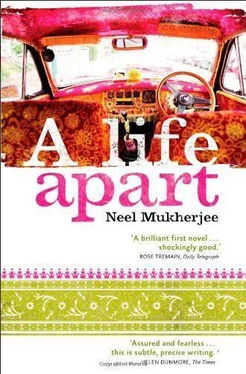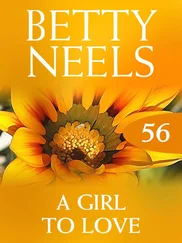Ritwik discovers a tattered, termite-infested 1904 edition of Mrs Beeton’s Cookery Book . He hesitates before showing it to Anne — who knows what tormenting history might jump out of this one like a particularly macabre jack-in-the-box — and leaves it lying on the kitchen table. After a day, Ritwik comments on it and Anne says, ‘Good god, that used to be my mother’s. Where on earth did you drag it out from?’ Her tone is pleased, surprised.
Ritwik brews some tea and they sit at the kitchen table, gently browsing. He discovers a brown newspaper cutting between pages 72 and 73, in the section on soups. It says GLYCERINE — THE HOUSEHOLD FRIEND. There follow three short paragraphs on the uses of glycerine — making cake mixes richer, preventing crystallization of jam, as fabric softener.
‘Anne, there’s a recipe for mullagatawny soup on page 73. Do you think the cutting was to mark that? Did you cook it in India?’
Anne has no memory of the crumbling cutting.
‘Oh my god, calf’s head soup, sheep’s head soup, ox cheek soup. Ughh.’
Anne cackles at his squeamishness.
‘Anne, look, a “Useful Soup for Benevolent Purposes”. Shall I make it for you tomorrow?’
On discovering that the first ingredient is an ox-cheek, they are helpless with laughter.
‘And, pray, what may the benevolent purpose be?’ Anne barely manages to say while dabbing at her eyes.
They ultimately settle on ‘Pea Soup (Green)’ — there are others: ‘Pea Soup (Yellow)’ and a ‘Pea Soup (Inexpensive)’ — and Ritwik spends a lot of time converting pints, pounds and quarts to more familiar measures.
‘I can’t taste anything or smell anything very much. Pea soups and mullagatawnies are all the same to me,’ Anne says.
The levity suddenly fades from the kitchen. ‘Do you ever have an appetite?’
‘No.’
The short, clear truth of her answer has a sobering effect on Ritwik.
‘You’ll find out that when you reach my age, you need very little to live on. That’s because you’re not really living, but waiting, which requires a lot less, I suppose.’
Ritwik reaches across the table to touch her nearly naked carpals. ‘As long as I’m here, you’re going to be eating,’ he says with enforced jollity. ‘I shall watch over your meals like a hawk. Pea soup it is tomorrow for supper.’
The packets of frozen petits pois sweat on the kitchen table, the spinach soaks in the sink, the lettuce is shredded, the stock is a murmuring simmer in a broken-handled pot at the back of the cooker. Anne has insisted on having the television on. Ritwik has had to concede on this one; she said it gave her company, as if his were not enough or up to the mark, he had pointed out, to which she had replied that the television gave company of such a different sort that they should have a different word for it altogether. Ritwik is brewing some tea in Anne’s old and chipped red teapot when she, in the middle of saying something about breadcrumbs to which Ritwik wasn’t paying much attention, asks him with a bell-like clarity, ‘Did you throw out all my gin or have you hidden it somewhere? I suspect the latter. In that case, we could reach a compromise: I’ll let you keep your hiding place a secret and you let me have a bottle when I want. Rationing. By far the best solution.’
‘On one condition,’ he says. ‘You tell me where you got it from.’
‘No. Never reveal one’s sources. Rule one. You should know.’
‘What do you mean, I should know?’
No answer. Ritwik decides to spring his surprise, a pleasant one: he has discovered a stash of mouldy, curling, black-and-white photographs in the loft above his room, hidden away in the insulating material, while he was attempting to hide the bottles of gin. He had looked at all of them and realized, to his great delight, that they were photographs from Anne’s days in India. Or perhaps not, because he couldn’t identify Anne in any of the pictures, but it was undeniable that they were all taken in India while it was still under British rule. Maybe they belonged to someone else and Anne had forgotten all about them. He hopes that it will be a treat for her to rediscover these forgotten images.
He runs upstairs, brings them down and presents them to Anne. ‘Look what I found. I think I’ll agree to your deal if you tell me what they are. Let’s go through each picture. Are you in any of them?’ Ritwik is so excited, his recent wrongfooting so erased, that he babbles like a hyperactive child.
Anne takes one look at them and sits down on a chair. Ritwik pulls another one beside her and places the photographs between them on the table. He can hardly stop talking as he goes through the pile, passing them to Anne, one by one.
‘Look, are these in India? What funny clothes. Did Englishwomen only wear these gowns all the time? And hats? God, they’re so elaborate. And umbrellas, they always carry umbrellas.’
‘Parasols. One needed to. It was a cruel sun out there.’
‘And look, the men all have moustaches.’ Ritwik is very amused. ‘What’s happening here?’
‘That looks like tea on the lawns. I forget where.’
‘And look at all these Indian servants in mufti, waiting on the lords and ladies.’
‘Oh, yes, they were indispensable.’
‘Why is everyone looking at the camera all the time? Anne, where are you? Are these from your days in India? Such a long time ago. Is this Simla, no, Dalhousie?’
Anne picks out a photograph, sepia with age, its edges spotted with a sprinkling of orange fungus. It looks like a tableau of an English family in a garden — a moustached man, sombre and grave; a lady smiling, her eyes in the shadow cast by her hat; a stiff boy dressed in his Sunday best; and a little girl, an infant really, in a floppy bonnet in the arms of her Indian ayah, reaching out with her little arms to the grass where she presumably wants to be put down. The ayah has a big, bright smile on her black face. There is a fiercely moustached Indian man in the background, a strap across his kurta, his turban too big for his head. There is also an Indian couple alongside him, looking startled, staring at the alien camera. They are in a garden washed with bright sunlight.
Anne points a moving finger at each figure and says, ‘That’s Christopher, here’s Richard, here’s Clare with her ayah, Savitri, that’s Bahadur Singh, and I don’t remember who the others are.’
‘Where is this?’
Anne is silent. Sensing something, Ritwik looks sideways at her. She has shut her eyes and is trying to get up.
‘Anne?’
‘Savitri drowned Clare in the bath. She was two. It was an accident but Savitri was inconsolable. She killed herself the next week. She loved the children. Chhota sahib , Richard was, and when Clare came, chhota mem . Loved them more than her life. It was just as well she took her own, they would have hanged her, anyway. She could have killed for them. Such a fiercely loyal creature. Something broke inside her after. . after the incident. Christopher wanted all the Indian servants shot. Ridiculous, really.’
Anne manages to stand up, push her chair back and start walking towards the door. Some of the photographs spill in a fan on to the linoleum-covered floor. Ritwik looks down at them: they have fallen face down, he can only see their browning backs.
‘You shouldn’t have taken them out,’ Anne mutters, more to the landing outside than to Ritwik, sitting behind her like an immovable rock.
The television continues to babble out its rubbish as Ritwik sits quietly after Anne has left the room, when some stray word or phrase seeps into his consciousness and stirs something. He looks up at the screen: there is a group of young men and women dressed in carnival costumes and a minor cavalcade of mock tanks and lifesize armoured vehicles made of cardboard joyfully protesting against something. They are carrying CAAT banners; it takes a while before the running commentary decodes this for him: Campaign Against Arms Trade. They are trying to barricade a convoy of cars — the vehicles of invitees to the Defence System and Equipment International Exhibition at Lydney in Gloucestershire.
Читать дальше












